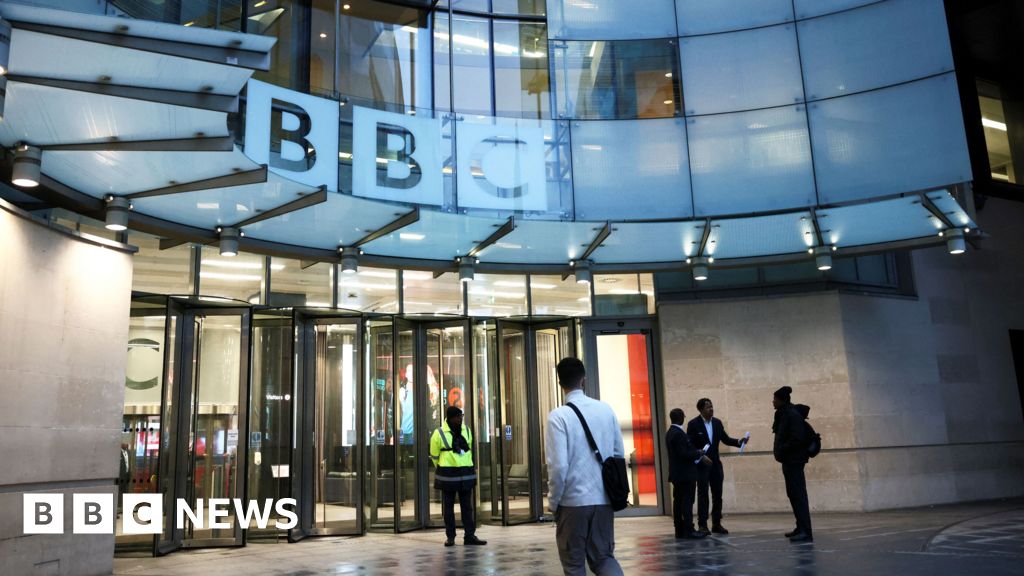Katie Razzall: A seismic moment that shows rift at top of

```html BBC Director-General Tim Davie and News CEO Deborah Turness Resign Amidst Impartiality Row
In a dramatic turn of events, Director-General of the BBC, Tim Davie, and CEO of BBC News, Deborah Turness, have both resigned, sending shockwaves through the corporation and raising serious questions about its impartiality and governance. The resignations come amidst escalating criticism surrounding a recent Panorama documentary and allegations of institutional bias. The BBC is now facing one of its most significant leadership crises in recent history.
Panorama Controversy Sparks Crisis
The immediate catalyst for the resignations appears to be the fallout from a Panorama documentary that allegedly misrepresented a speech by former US President Donald Trump. Accusations centered on the editing of the speech, with critics claiming it misled viewers and fueled perceptions of bias. While the BBC initially hesitated to issue a swift apology or robust defense of its editorial decisions, the controversy rapidly intensified, attracting condemnation from Trump himself and sparking a broader debate about the BBC's commitment to impartiality.
Turness, in her resignation statement, reportedly stated that "the buck stops with me" regarding the controversy surrounding the Trump Panorama. This suggests a principled stance, accepting responsibility for the editorial oversight that led to the misrepresentation. However, sources within the BBC indicate that Turness grew increasingly frustrated as the week progressed because she was prevented by the Board from issuing a prompt apology.
Broader Concerns About Impartiality
Beyond the immediate Panorama controversy, the resignations have exposed deeper fault lines within the BBC. A leaked internal memo alleged anti-Israel bias in the BBC Arabic's coverage of the war in Gaza, further fueling concerns about institutional bias. Critics argue that the BBC has failed to adequately address these long-standing issues and ensure editorial impartiality across its platforms.
The BBC Board's role in the crisis has also come under scrutiny. Some observers suggest that a rift has emerged between the Board and the news division, with accusations that the Board has been overly critical of BBC journalism and that some members are pursuing a politically motivated agenda. David Yelland, a former Sun editor and current BBC presenter, has gone as far as to describe the situation as "nothing short of a coup," alleging that the Board has been undermined by external forces.
Expert Analysis: A Crisis of Trust
Professor Jean Seaton, a media historian at the University of Westminster and author of "Pinkoes and Traitors: The BBC and the Nation, 1922-2022," argues that the resignations represent a significant crisis of trust for the BBC. "The BBC's reputation for impartiality is its most valuable asset," she explains. "These resignations, coupled with the allegations of bias, erode public confidence and undermine the corporation's credibility. The BBC needs to take decisive action to restore trust, starting with a transparent and independent inquiry into the issues raised."
Historical Context: Navigating Political Pressures
The BBC has a long history of navigating political pressures and accusations of bias. From its early days, the corporation has been subject to scrutiny from governments and interest groups seeking to influence its coverage. The current crisis, however, comes at a particularly sensitive time, as the BBC faces increasing competition from streaming services and debates about its funding model. The need to demonstrate impartiality and maintain public trust is more crucial than ever.
The Future of the BBC
The resignations of Davie and Turness leave the BBC facing a period of uncertainty. The corporation must now find suitable replacements to lead it through this challenging time. The new leadership will need to address the underlying issues of impartiality, rebuild trust with the public, and navigate the evolving media landscape. The BBC's future as a trusted and respected public service broadcaster hangs in the balance.
Industry Reaction
Kelvin MacKenzie, another former Sun editor, offered a contrasting view, stating that the resignations were "the right thing to do." He emphasized the potential legal ramifications of the Trump documentary edit and the importance of maintaining trust in the BBC's journalism.
The BBC has not yet announced details of the search for replacements for Davie and Turness. An internal statement from the BBC Chair apologized over the Trump speech edit and indicated that they should have acted sooner to investigate concerns around the editing of the documentary. ```
Originally sourced from: BBC Entertainment
